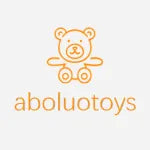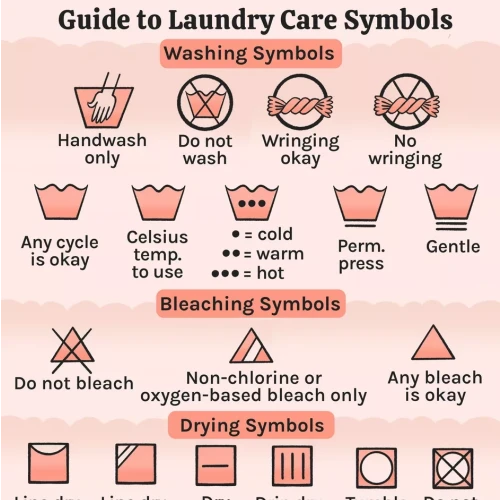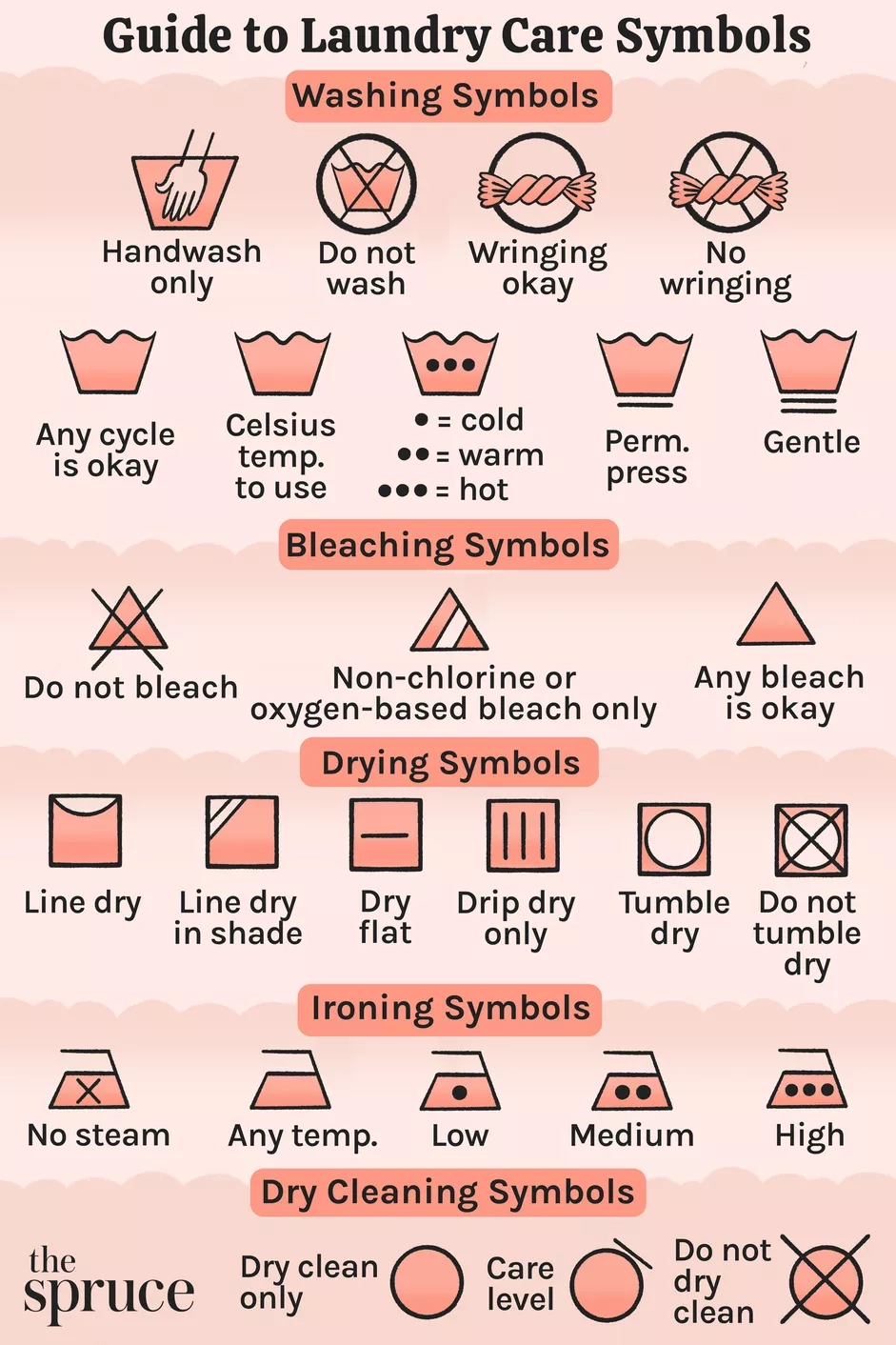You've done laundry for years so you just ignore the labels. Have you ever had a T-shirt shrink so small it fits the dog? Have you ever had a silky blouse come out looking dull and covered with balls of fuzz? It might be time to take a few seconds and look at the care symbols. Laundry symbols on clothes labels are there to help you. Every circle, triangle, and square has a meaning. You can become a laundry expert once you master the five basic symbols.
Do You Have to Follow the Symbols Exactly?
Most clothing manufacturers recommend the most conservative cleaning method to ensure the best results for the consumer. For instance, some fabrics that are labeled as dry clean can be hand washed. This is why it is important to note the fiber content of the fabric so you can make an informed laundry decision.
Familiarize yourself with the following laundry symbols to best care for your clothes.
Laundry Care Symbols
The laundry symbols on clothing and linen labels provide important information on how to care for your clothing and fabrics. The labels were developed as part of the International Organization for Standardization (ISO). Symbols, rather than words, were chosen to better convey information around the world. While there are variations in Europe and Asia, the basic shapes transcend continent borders.
Care labels are mandated by the government in the United States and many countries to identify the fiber content of the fabric and provide care instructions.
The international community uses five basic symbols for washing, drying, bleaching, ironing, and dry cleaning. Once you learn the basic shapes, interpreting the rest is pretty simple. An "x" through any symbol means "Don't do this!"
How to Wash Clothes Symbols
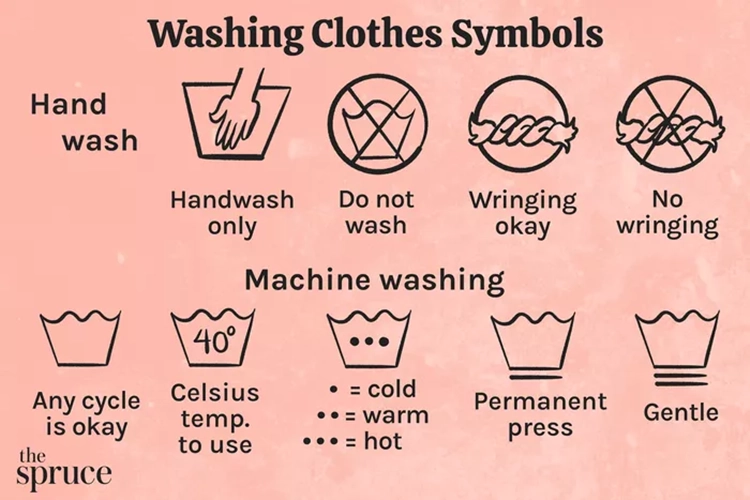
The washtub shape indicates washing instructions. If there is an "x" over the tub symbol, do not wash the item. If the washtub has a hand reaching into the water, the garment should be hand washed. Although, washing machines have added a delicate or gentle cycle for hand washables (water temperature must be 104 degrees Fahrenheit or lower).
1.Handwash Only
- Tub with a hand: Handwash only
- Silk or cashmere: Handwash instead of delicates cycle; less risk of snagging or shrinking
- Twisted cloth (looks like a piece of wrapped hard candy): Wringing OK
- An "x" over the twisted cloth symbol: No wringing (instead, squeeze gently or wrap in a thick towel to absorb water)
2.Machine Washing
- A number inside the washtub: Celsius water temperature to use
- Dots inside the washtub (Water temperature range): One dot for cold, two dots for warm, and three dots for hot water
- Lines under the washtub (washing machine spin cycle): One for permanent press, two for gentle
- No lines under the washtub: Any washing machine cycle OK
How to Bleach Clothes Symbols
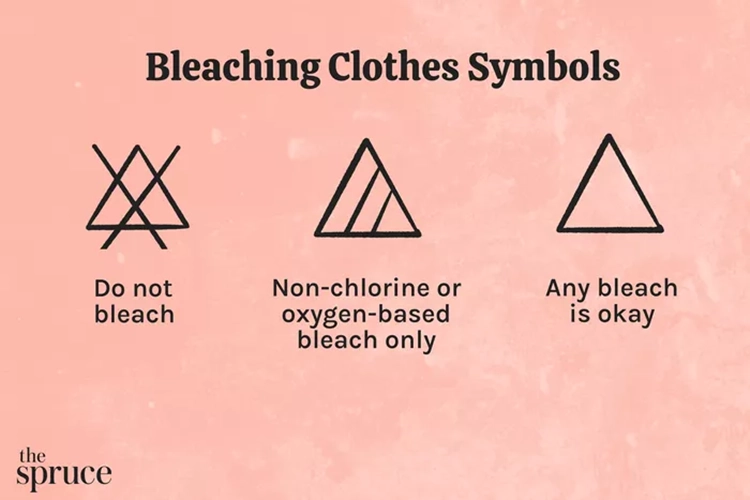
Symbols on how to bleach the clothing may not appear on every garment. But when you see the triangular shape, it will offer help on how to select a type of bleach.
- An "x" over a solid color triangle: Do not bleach
- Triangle with two slanted lines: Use non-chlorine or oxygen-based bleach
- Clear triangle: Any type of bleach can be used
Often a label may have no triangular symbol, but instead, states "No Chlorine Bleach." You can still use an oxygen-based bleach (Clorox 2, OxiClean, OXO Brite, or Nellie's Natural Oxygen Brightener), only exceptions are wool, silk, and leather (do not use any bleach of any kind on those fabrics).
How to Dry Clothes Symbols
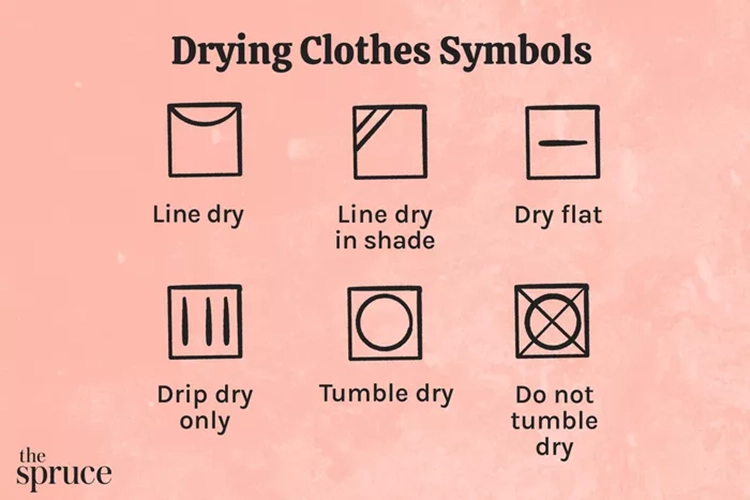
Excessive drying is one of the most damaging things we do to our laundry. International drying symbols help you select a dryer cycle and a temperature. The square drying symbol also helps you know how to dry clothes naturally or with a tumble dryer.
1.Do Not Put in the Dryer
- Drip dry only: Three vertical lines in the square indicate the clothes should be hung to drip dry
- Line dry only: A curved line in the square
- Line dry in shade: Two slanted lines in the corner of the square mean line dry in the shade away from harsh sunlight.
- Dry flat: A horizontal line in the center of the square means to dry the garment on a flat surface to prevent stretching.
2.Tumble Dry Settings
- A circle in the square: You can tumble dry. Dots inside the circle suggests the temperature of heat you can use: one dot for low, two dots for medium, three dots for high heat.
- Lines under the square: The dryer cycle you can use. No lines: You can use any tumble dry cycle; one line: permanent press; and two lines: gentle or delicates.
- An "x" over the tumble dry symbol: Do not tumble dry.
How to Iron Clothes Symbols
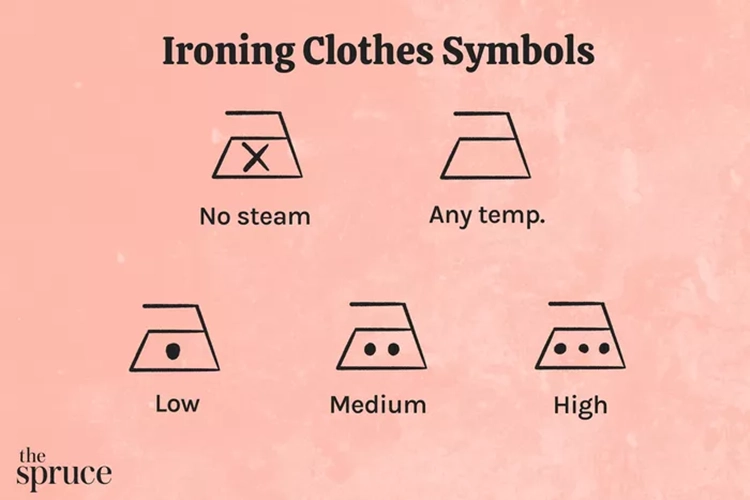
Look for the iron-shaped symbol to guide you as you select a temperature setting and whether to use a dry iron or steam. An "x" through the steam coming from the bottom of the iron means use no steam.
The dots in the iron indicate temperature.
- Zero dots: You can use any temperature
- One dot: Low-temperature setting (silk or wool)
- Two dots: Medium-temperature setting (synthetics)
- Three dots: High-temperature setting (linen or cotton)
How to Dry Clean Clothes Symbols
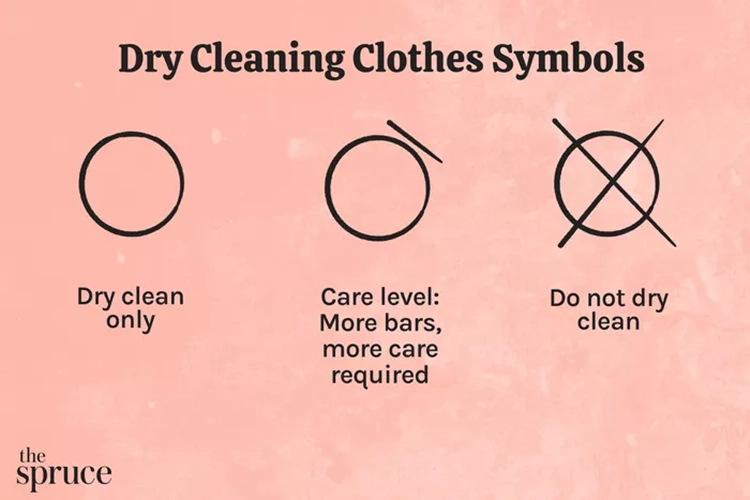
If the care label has a small circle the manufacture is stating you must dry clean this item. Unless you are an expert at clothing care, always trust the dry clean only symbol. If the garment is not expensive and you're willing to take a chance, follow common guidelines to determine whether to dry clean or wash a garment.
The following dry-cleaning symbols specifically address the cleaning chemicals and the type of cleaning cycle that the dry cleaner should use.
- A letter inside the circle: Chemical the dry cleaner can use
- Number of bars with the circle: Amount of care the dry clean must take with item (more bars, more care)
- An "x" over the circle: Do not dry clean item
If you decide to use a home dry cleaning kit, don't worry about the choice of chemicals. The kits use universal stain remover that works for all fabrics.
